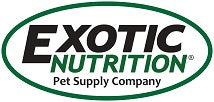Owning a pet skunk can be a rewarding experience, but these unique animals require specialized veterinary care that differs greatly from dogs, cats, or other small pets. Understanding your skunk’s medical needs early on will help ensure a long, healthy life.

Initial Veterinary Care
Baby skunks from pet stores typically only have their scent glands removed before being sold. New owners should schedule a vet visit as soon as possible to begin proper care, including:
-
Spaying or neutering (males at 3–4 months; females at 4–6 months)
-
Vaccinations, such as Galaxy DA2PPvL+Cv and Eclipse 4 (with yearly boosters if recommended by your vet)
-
Deworming and testing for parasites like coccidia and protozoa
Because skunks are in the family Mephitidae, they are not rodents and should not be treated as such. Veterinary understanding of skunks is still developing, and not all vets have experience with exotic species, so it’s best to consult one who specializes in exotic or wildlife medicine.
Common Health Concerns
Roundworms (especially Baylisascaris columnaris) are a major health concern for pet skunks. These parasites can be deadly and difficult to detect early on. Experts recommend starting a deworming program at 7–8 weeks of age, repeating treatments every two weeks for 3–4 cycles. Since roundworm eggs can remain viable for years, keeping your skunk’s enclosure clean and sanitary is essential.
Skunks should also have annual veterinary checkups to monitor their overall health and prevent potential issues before they become serious.
Daily Nutrition & Supplements
Proper nutrition is one of the best ways to support your skunk’s immune system and overall well-being. A balanced diet, such as Exotic Nutrition’s Premium Skunk Diet, provides complete daily nutrition designed specifically for skunks. For added health support, consider supplementing with:
-
Vita-Skunk – a daily multivitamin formulated for skunks
-
VitaGlow Supplement – a liquid supplement that promotes a shiny coat, healthy skin, and strong immunity

Grooming & Claw Care
Skunks use their claws for digging and handling food, so they should never be declawed. Instead, trim their claws regularly to prevent overgrowth.
With proper veterinary care, nutrition, and routine attention, your skunk can live a long and happy life as part of your family. Explore Exotic Nutrition’s full line of skunk supplies, including Premium Skunk Diet, Vita-Skunk, and VitaGlow Supplement, to give your pet the care it deserves.
Ready to Shop? Shop By Pet or Shop By Category
Got Questions? Browse more free Blogs or Contact Us with any inquiries regarding our products.
Notice: Exotic Nutrition cannot provide specific care guidelines on an individual basis. Please consult a veterinarian or wildlife rehabilitation clinic.
Exotic Nutrition is proud to serve hundreds of universities, zoological parks, veterinarians, research centers, and other institutions seeking to advance the health and well-being of exotics worldwide. See a full list of institutions using our products here.
Exotic Nutrition has a heart for animals in need. Through regular donations to rescues, rehabilitators, and special fundraiser events, Exotic Nutrition is making a significant impact on the lives of animals. See a full list of our charitable donations here.

Leave a Comment